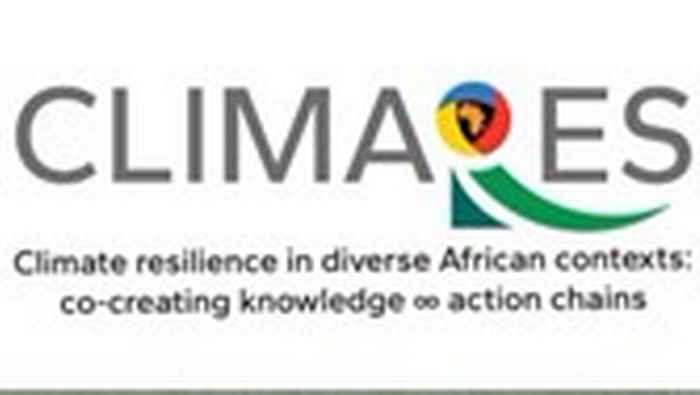Large climate project CLIMARES receives prestigious NWA-ORC grant
International Development researchers part of groundbreaking climate resilience research across Africa
27 November 2024

Equal partnership and co-creation
This six-year project, titled ‘Climate Resilience in Diverse African Contexts: Co-Creating Knowledge ∞ Action Chains’ (Climares), unites partners from over 20 organizations to focus on five African regions: the Democratic Republic of Congo, Morocco, Mozambique, Senegal, and Uganda.
Equal partnership and co-creation are our key principles. The multinational, multilingual, multidisciplinary, and multisectoral nature of our consortium is definitely a strength.Maggi Leung
Climares, based at Erasmus University Rotterdam’s International Institute of Social Studies (ISS) and supported by The Hague Humanitarian Studies Centre, seeks to enhance climate resilience among vulnerable populations in Africa. Including smallholder farmers, fisherfolk, urban outdoor workers, pastoralists, and displaced persons.
The programme group Governance and Inclusive Development (GID), part of the Amsterdam Institute for Social Science Research (AISSR), is a vital member of this consortium and will co-lead three core work packages (WPs):
- Fisherfolk: Co-led by Margriet Zwarteveen.
- Urban Outdoor Workers: Co-led by Maggi Leung.
- Global Connections: Co-led by Joyeeta Gupta, linking African contexts with global climate policies and support frameworks.
Inclusive Knowledge-to-Action Chains
By creating inclusive ‘Knowledge ∞ Action Chains’ (K∞A) that involve citizens, local authorities, and global stakeholders, the Climares project will ensure the delivery of accurate, usable climate information. This collaboration emphasizes the use of participatory methods, such as co-created ‘climate storylines’ to facilitate effective climate adaptation strategies.
Climares strives to make weather and climate data both accurate and actionable. The insights and models developed through Climares can provide a framework for global climate adaptation efforts.Maggi Leung
Climares Academy
The Climares project will also establish the ‘Climares Academy’ to train the next generation of climate researchers, grounded in the principles of Co-creation, Interdisciplinarity, Transdisciplinarity, and Equal Partnerships (CITE).
Within this initiative, 2 of the 11 new PhD students will be based in the GID programme group at the AISSR.
Climares Consortium
The multinational consortium comprises universities, NGOs, social enterprises, government agencies, and various other collaborators.
Partner institutions in the Netherlands
- Deltares
- IHE Delft Institute for Water Education
- KNMI (Royal Netherlands Meteorological Institute)
- Leiden University
- Maastricht University
- The Hague University of Applied Sciences
- University of Amsterdam
- University of Twente
- Upinion
- Wageningen University & Research
Partner institutions across Africa
- Cadi Ayyad University (Morocco)
- Cheikh Anta Diop University (Senegal)
- CREDETIP (Senegal)
- Eduardo Mondlane University (Mozambique)
- Institut Agronomique et Vétérinaire Hassan II (Morocco)
- ISDR Bukavu (Democratic Republic of Congo)
- Makerere University (Uganda)